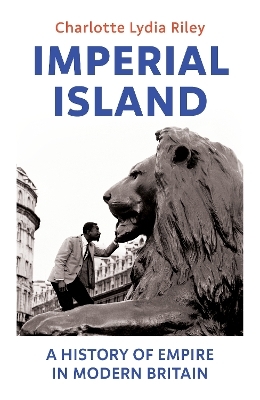
Imperial Island
A History of Empire in Modern Britain
Seiten
2023
The Bodley Head Ltd (Verlag)
978-1-84792-644-9 (ISBN)
The Bodley Head Ltd (Verlag)
978-1-84792-644-9 (ISBN)
Imperial Island shows how empire and its ever-present aftermath have divided and defined Britain over the last seventy years.
'Masterful ... you won't look at Britain in the same way ever again' OWEN JONES
After the Second World War, Britain's overseas empire disintegrated. As white settlers from Rhodesia returned home to a country they barely recognised, Commonwealth citizens from Asia and the Caribbean migrated to a motherland that often refused to recognise them. Race riots erupted in Liverpool and Notting Hill even as communities lived and loved across the colour line. In the 1950s and 60s, imperial violence came home too, pervading the policing of immigrant communities, including their sex lives. In the decade that followed, a surge of support for the far-right inspired an invigorated anti-racist movement.
These tensions, and the imperial mindset that birthed them, have dominated Britain's relationship with itself and the world ever since: from the simplistic moral equation of Band Aid to the invasion of Iraq, in the tragedy of Stephen Lawrence and the opening ceremony of the 2012 Olympics, we see how Britain's contradictory relationship with its past has undermined its self-image as a multicultural nation.
Imperial Island tells a story of immigration and fractured identity, of social strife and communal solidarity, of people on the move and of a people wrestling with their past. It is the story that best explains Britain today.
'An eye-opening study of the empire within' SHASHI THAROOR
'Clear, bold, refreshing' LUCY WORSLEY
'Masterful ... you won't look at Britain in the same way ever again' OWEN JONES
After the Second World War, Britain's overseas empire disintegrated. As white settlers from Rhodesia returned home to a country they barely recognised, Commonwealth citizens from Asia and the Caribbean migrated to a motherland that often refused to recognise them. Race riots erupted in Liverpool and Notting Hill even as communities lived and loved across the colour line. In the 1950s and 60s, imperial violence came home too, pervading the policing of immigrant communities, including their sex lives. In the decade that followed, a surge of support for the far-right inspired an invigorated anti-racist movement.
These tensions, and the imperial mindset that birthed them, have dominated Britain's relationship with itself and the world ever since: from the simplistic moral equation of Band Aid to the invasion of Iraq, in the tragedy of Stephen Lawrence and the opening ceremony of the 2012 Olympics, we see how Britain's contradictory relationship with its past has undermined its self-image as a multicultural nation.
Imperial Island tells a story of immigration and fractured identity, of social strife and communal solidarity, of people on the move and of a people wrestling with their past. It is the story that best explains Britain today.
'An eye-opening study of the empire within' SHASHI THAROOR
'Clear, bold, refreshing' LUCY WORSLEY
Charlotte Lydia Riley is a historian of twentieth-century Britain at the University of Southampton, specialising in questions about empire, politics, culture and identity. Her writing has appeared in a wide range of publications including the Guardian, New Statesman, Financial Times, Washington Post and History Today. She tweets @lottelydia.
| Erscheinungsdatum | 12.12.2022 |
|---|---|
| Zusatzinfo | 1 x 8pp colour / integrated b/w |
| Verlagsort | London |
| Sprache | englisch |
| Maße | 155 x 235 mm |
| Gewicht | 460 g |
| Themenwelt | Geisteswissenschaften ► Geschichte ► Allgemeine Geschichte |
| Geisteswissenschaften ► Geschichte ► Regional- / Ländergeschichte | |
| Geschichte ► Teilgebiete der Geschichte ► Wirtschaftsgeschichte | |
| ISBN-10 | 1-84792-644-4 / 1847926444 |
| ISBN-13 | 978-1-84792-644-9 / 9781847926449 |
| Zustand | Neuware |
| Haben Sie eine Frage zum Produkt? |
Mehr entdecken
aus dem Bereich
aus dem Bereich


